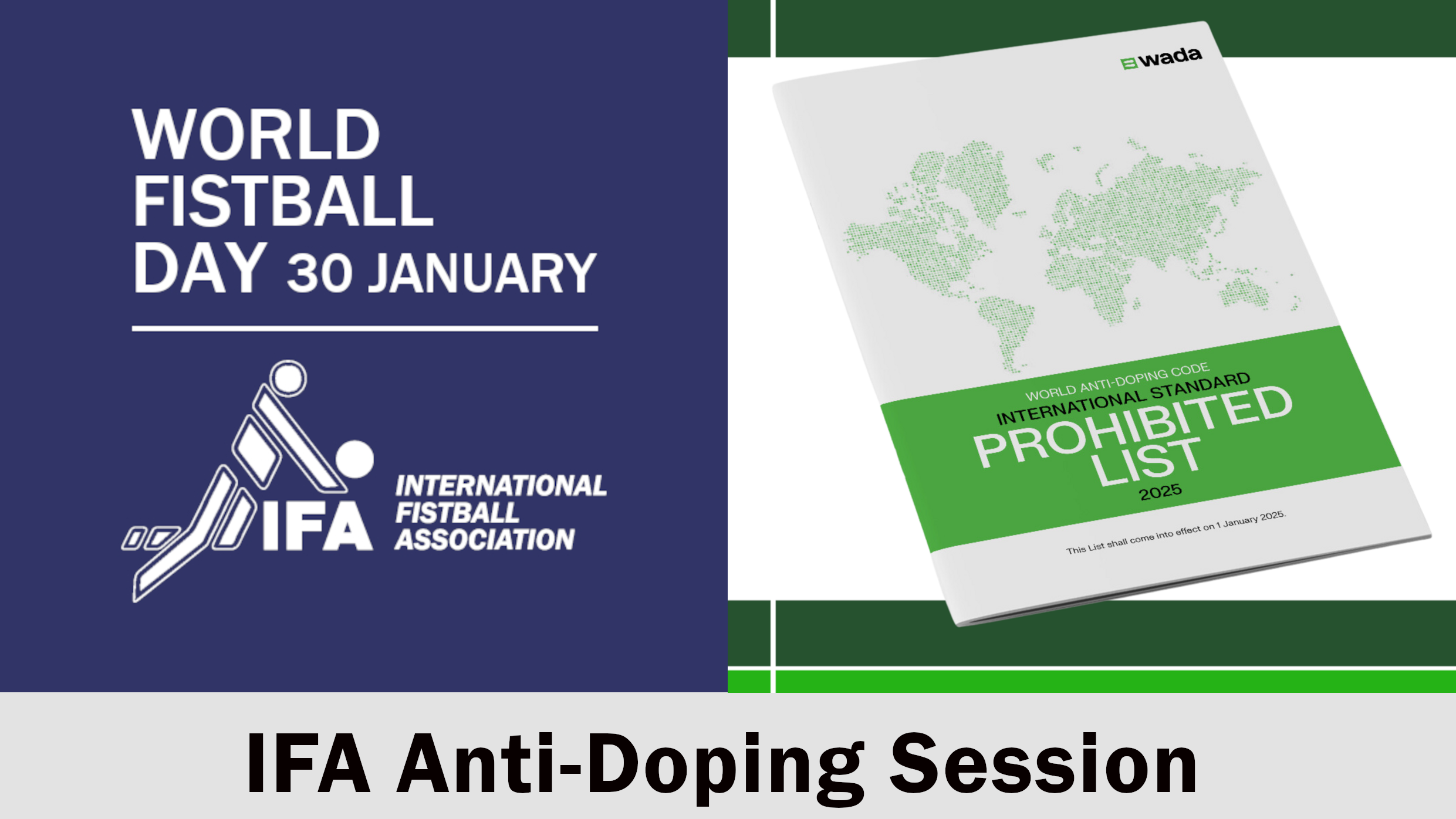Time and again, there are doping incidents in sport. Although we have not had a positive doping case in Fistball so far, our athletes are subject to the World Anti-Doping Code of WADA.
IFA President Jörn Verleger, who is also the chair of the IWGA Anti-Doping Panel, answered fundamental questions about doping and anti-doping work in Fistball.
Why is it important to deal intensively with the topic of anti-doping?
Verleger: It is of crucial importance to ensure the integrity and fairness of the sport. Through clear guidelines and measures, we want to protect clean athletes and promote a fair competitive environment. Doping undermines these values and endangers trust in the sport.
What exactly is doping?
Verleger: Doping refers to the use of substances that produce a non-training-related increase in performance. A comprehensive list of these prohibited substances can be found in the World Anti-Doping Agency (WADA) Prohibited List. This list is updated annually and applies to all international and national sports federations worldwide.
How are athletes divided into test pools?
Verleger: The IFA has created two testing pools, although there are currently no players in the RTP.
1. ONTP (Other National Team Pool): The associations must provide information on training locations and dates for national team activities. Upon separate request, the associations must also provide regular training activities of the club teams (one regular training session per week during the season) of the league clubs of their country with current national players of their country.
Due to their success at the last championships, the associations of Germany (women & men), Austria (men) and Brazil (women) are in the ONTP in 2025.
2. RTP (Registered Testpool): Each athlete in a RTP must report his or her whereabouts via a special WADA online tool (ADAMS), providing his or her daily whereabouts and overnight accommodation, as well as his or her training and competition schedule.
The IFA can assign athletes to the RTP at any time, especially if there are any suspicions. The athletes will be notified in advance.
How are doping controls carried out?
Verleger: Unannounced controls with urine or blood samples are carried out on the test pool athletes during training and during a tournament. The IFA commissions specialized companies to carry out the controls. The blood and urine samples are analyzed at WADA-recognized institutes in Germany, such as the Institute of Biochemistry at the German Sport University Cologne and the Institute for Doping Analytics and Sports Biochemistry in Dresden. A doping sample costs about €500-1000.
What are the most common doping offenses?
Verleger: The most common doping offenses include, in general, the use of prohibited drugs and substances, such as certain hormones, asthma medications, stimulants and muscle-building hormones such as anabolics and EPO.
This also includes measures to improve endurance, such as the administration of blood products before competitions.
In addition, a repeated reporting violation is considered a doping offense and is sanctioned accordingly.
In Fistball, all controls have so far been without positive findings. We explain this by the fact that there are no professional athletes competing in Fistball or that there are no cash prizes. However, we cannot be sure that banned substances are not used in Fistball either. The best way for us to counter this is to raise awareness of integrity and fairness in sport.
What responsibility does an athlete have with regard to doping controls?
Verleger: Every athlete is responsible for what is found in a doping sample. It is important that the WADA’s list of banned substances is also known in the athlete’s environment – including partners, trainers, doctors and physiotherapists – in order to avoid positive test results due to ignorance. If a prohibited substance is necessary for medical reasons, a so-called TUE must be applied for in advance.
Watch the IFA Anti-Doping Session re-live!


 Deutsch
Deutsch